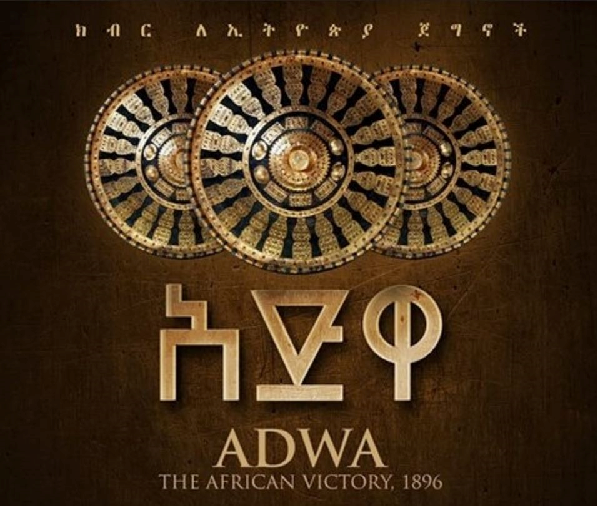
Last Saturday, Ethiopians across the country commemorated the 128th anniversary of the historic Battle of Adwa. The battle, which took place on March 1, 1896, saw Ethiopian forces led by Emperor Menelik II successfully defeating Italian colonial invaders, marking a significant victory for all black people.
The victory is considered a turning point in African history, as it demonstrated that an African nation could defeat a European colonial power. The victory at Adwa not only preserved Ethiopia’s sovereignty but also inspired other African nations to resist colonization and fight for their independence. It is also the cause of the inception of the pan-African movement. After the Ethiopians beat the Italian army under the command of brigadiers Albertone, Dabormida, Ellena, and Arimondi, the Italians chanted “Viva Menelik, Viva Taitu!” around Rome as a form of protest against colonial control.
To honour the memory of those who fought and died at Adwa, ceremonies and events were held throughout Ethiopia. In Addis Ababa, a large military parade was held, with participants dressed in T-shirts printed with references to Adwa. Videos commemorating the historic battle were displayed on big screens. The event was attended by higher government officials, members of the Ethiopian National Defense Forces (ENDF), foreign diplomats, foreign military attachés, and numerous Ethiopians.
In other parts of the country, including Adwa itself, the victory was commemorated in the presence of President Sahle-Work Zewde, Tigray regional state officials, and the people. During her speech, the president emphasized that when the enemy invaded Ethiopia, the people, regardless of race, religion, or gender, rallied behind Emperor Menelik II and made history by standing together in these mountains and hills. The victory gave hope to the African continent and all oppressed people. She also expressed sadness over the northern Ethiopian conflict.
After three and a half years, she expressed her happiness at being able to celebrate the festival by being present in the historical city of Adwa in Tigray. “May God help us to overcome our current challenges; let religious and ethnic divisions be enough,” she said. She urged Ethiopians to identify the sources of their problems and work together to eliminate them.
She emphasized that in a civil war, there may be temporary winners, but there are no permanent winners. Therefore, to avoid this, the country should unite and save itself from foreign invaders. She called on Ethiopians to refrain from taking up arms against their brothers and sisters if the victory of Adwa was to be lasting. Sahle-Work stated that efforts should be made to peacefully resolve conflicts seen in other regions by working together and cooperating.
The commemoration of the Battle of Adwa serves as a reminder of Ethiopia’s proud history and its role in the fight against colonialism. It highlights the importance of unity and solidarity among African nations in the struggle for freedom and self-determination.
American political-economic analyst Lawrence Freeman, in an interview with ENA, stated that the victory shook the very foundations of European imperialism and nearly brought them to a downfall. He emphasized that the event became a rallying point for Africans and African Americans in the United States and played a crucial role in the liberation movements of African nations in the 1960s and 1970s. He described the battle as a unique event of effective resistance by an African nation and its people.
Freeman further explained that the victory was the result of a unified Ethiopia where citizens set aside their differences and fought together to defeat the Italian imperialists on March 1, 1896. He noted that various sections of Ethiopian society united to defeat the enemy and secure their freedom. He highlighted that the event has shaped the Ethiopian mindset in the 20th and 21st centuries.
He urged the country to follow the spirit of Adwa and work together to build a strong future for Ethiopia, emphasizing that unity was crucial for guaranteeing a strong future for future generations. Freeman commended Ethiopia for inaugurating the newly built Adwa Victory Memorial, which commemorates the nation’s heroes and heroines.
He emphasized that the legacy of Adwa still influences the Ethiopian mindset today, inspiring people with its stories of defeating imperialism.
Freeman also acknowledged Ethiopia’s potential for economic growth, stating that the country is already a leading nation in East Africa. He praised Ethiopia’s commitment to regional integration through the export of electricity and said it will continue it from the Grand Ethiopian Renaissance Dam (GERD) to neighbouring nations. He further highlighted Ethiopia’s membership in BRICS as another form of leadership for Africa, which he believes will contribute to increased economic growth in the East African region.
As Ethiopians reflect on the legacy of Adwa, they are reminded of the sacrifices made by their ancestors to secure their independence. The spirit of resilience and determination displayed at Adwa continues to inspire generations of Ethiopians to stand up for their rights and defend their sovereignty.
Recently, Deputy Prime Minister Temesgen Tiruneh also emphasized that in the Battle of Adwa, Ethiopia not only defeated the enemy through the collective efforts of its brave citizens but also demonstrated its resistance to colonization for black people. He highlighted unity, love, and cooperation as the key factors that led to the victory. Temesgen explained that Adwa was an African victory achieved through the power of Ethiopians united by national unity. He stated that the Battle of Adwa serves as a reminder that Africans can overcome challenges and build a prosperous future.
Overall, the commemoration of the Battle of Adwa in Ethiopia is a significant event that honours the country’s victory over Italian colonial invaders and showcases the spirit of unity and resilience. It serves as a reminder of the importance of African independence and unity in the face of colonialism and inspires generations to stand up for their rights and sovereignty.
It is also remembered that the triumph emphasizes the role of women and women’s leadership, with Empress Taitu Betul acting as a role model for rising women in the nation. The victory also demonstrates how unity is powerful in opposing foreign meddling.
BY EYUEL KIFLU
THE ETHIOPIAN HERALD TUESDAY 5 MARCH 2024





